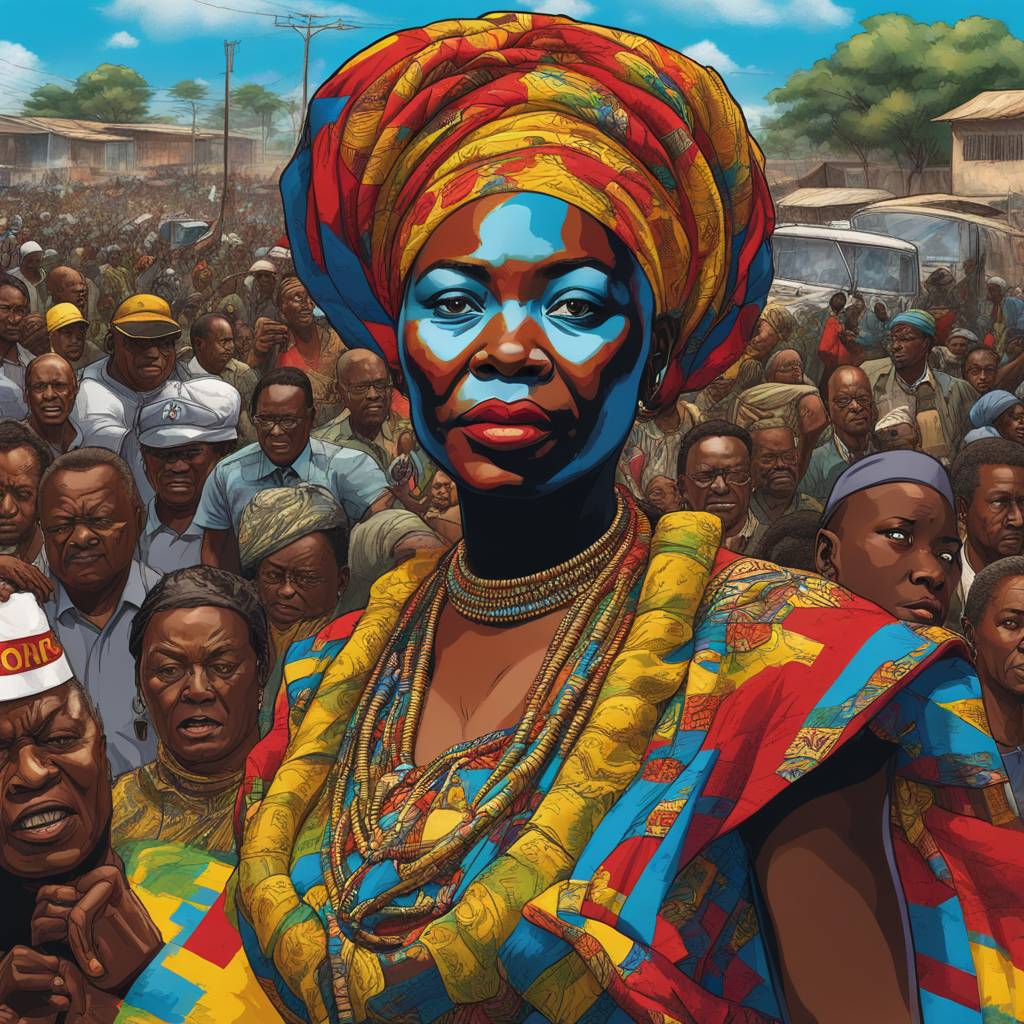President Felix Tshisekedi of the Democratic Republic of Congo has appointed the country’s first female prime minister, Judith Suminwa Tuluka, in fulfillment of a campaign promise. This move marks an important step towards the formation of a new government following Tshisekedi’s re-election late last year. Tuluka, a former planning minister, has vowed to work towards peace and development in the country, particularly in the eastern region, where violence and conflict have displaced over 7 million people. However, the process of forming a new government is expected to take several months as negotiations with various political parties are required.
The eastern region of Congo, which borders Rwanda, has long been plagued by violence, with more than 120 armed groups vying for control over the area’s rich mineral resources. The ongoing conflict has led to mass killings and widespread displacement of civilians. Despite the presence of regional and U.N. peacekeepers, the situation has continued to deteriorate, prompting the Congolese government to ask for their withdrawal. This move has further exacerbated the violence in the region, with rebel groups such as M23 making significant territorial gains and leading to a surge in displacement.
President Tshisekedi, who was re-elected to a second five-year term in December, has accused neighboring Rwanda of providing military support to the rebels. Rwanda has denied these allegations, but U.N. experts have reported evidence of Rwandan forces operating in Congo. The United States has urged both countries to de-escalate tensions and avoid the brink of war. The U.S. State Department specifically called on Rwanda to withdraw its troops and surface-to-air missile systems from eastern Congo and criticized the M23 rebel group, labeling it as “Rwanda-backed.”
The appointment of Judith Suminwa Tuluka as prime minister comes at a critical time for Congo, as the country grapples with escalating violence and a worsening humanitarian crisis. Tuluka has vowed to prioritize peace and development, particularly in the conflict-affected eastern region. However, the formation of a new government will involve complex negotiations with various political parties, which could take several months to complete. As violence continues to escalate in the east, with rebel groups gaining ground and displacing more civilians, urgent action is needed to address the root causes of the conflict and alleviate the suffering of the affected population.
The situation in Congo underscores the challenges faced by the country in achieving stability and peace, particularly in the eastern region. The presence of multiple armed groups, allegations of foreign military support, and the withdrawal of peacekeepers have further complicated efforts to address the conflict. President Tshisekedi’s decision to appoint a female prime minister signals a commitment to gender equality and inclusivity in the political leadership of the country. However, much work remains to be done to address the root causes of the conflict and bring about lasting peace and development in Congo. It is crucial for the international community to support the efforts of the Congolese government in resolving the crisis and providing assistance to those affected by the violence.


